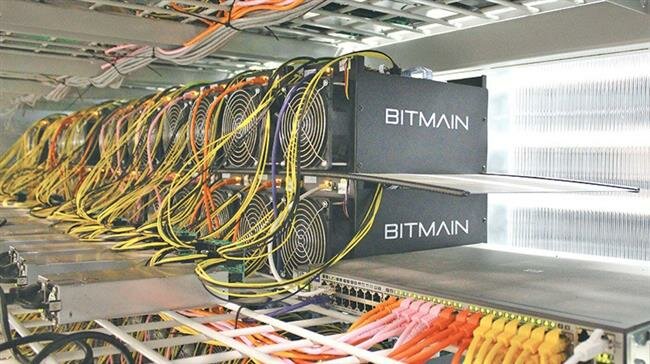Countries with cheap electricity have emerged as major hosts of cryptocurrency mining. China is a major player in the bitcoin market, hosting a substantial share of miners.
According to the managing director of Iran Blockchain Association, a nonprofit community which promotes blockchain technologies, initial discussions have been held with the Chinese about their plans in Iran.
“The Chinese have made requests through official channels for cryptocurrency mining in free zones,” Mohammad Sharqi said.
At home, the Chinese government has begun limiting cryptocurrency mining, forcing many prospectors to find bases elsewhere.
Chinese companies are among the biggest manufacturers of bitcoin mining gear. They sold about $1.30 billion of blockchain hardware in 2017, 45 percent of global sales by value.
In Iran, domestic cryptocurrency mining has officially been recognized as an industry but different state organs remain uncoordinated when it comes to the overall policy.
Nasser Hakimi, deputy governor for new technologies at the Central Bank of Iran, said on Monday bitcoin trading is illegal, citing a ban by the local anti-money laundering authority.
Last year, when the central bank officially banned lenders from servicing crypto businesses, officials said they would consider launching their own digital token.
A 7% spike in power consumption in June, however, has generated a chorus of recrimination which has touched off peremtory crackdown on bitcoin miners.
Digital miners in Iran are said to be basing their operations in locations with access to subsidized electricity, such as factories, agricultural sites, government offices and mosques.
Sharqi believes much of the clamor about an extremely deleterious effect of the practice is overblown.
While there is no precise tabulation on cryptocurrency mining in Iran, one electrical industry spokesman has put the number of bitcoin mining machines north of 148,000.
On the flip side, the government is facing a serious dilemma as it is taking to the virtual, decentralized currency concept.
Despite being an alternative currency alternative, governments across the world are wary of bitcoin’s disruptive nature due to a lack of state control and regulation.
In the United States, lawmakers have called for a bill outlawing cryptocurrencies, because they can help governments skirt sanctions.
That is because an awful lot of the US power comes from the dollar being used as the standard unit of international finance and transactions. The use of bitcoin is eating at that advantage and effectively disempowering the United States.
For countries like Iran, however, virtual and digital currencies provide a back-channel to bypass US sanctions.
Sharqi says the energy ministry had better regulate digital mining by giving out licenses for industrial and commercial utilization of electricity.
“Our argument is there is a danger that these activities might go underground and to the homes of ordinary people, which is dangerous,” he said.
On Saturday, Iran’s Minister for Communications and Information Technology Mohammad Javad Azari Jahromi admitted that the Chinese were interested in tapping Iranian cryptocurrency market.
“If there is a demand by foreign investors in this regard, the Ministry of Energy could take advantage of it and welcome them in order to develop infrastructure and produce electricity,” Sharqi said.
